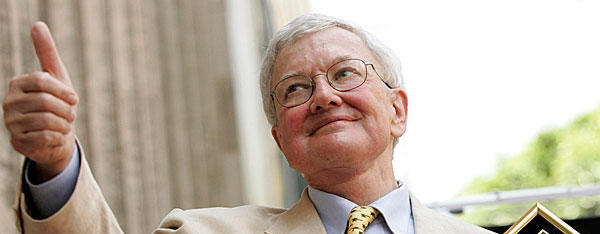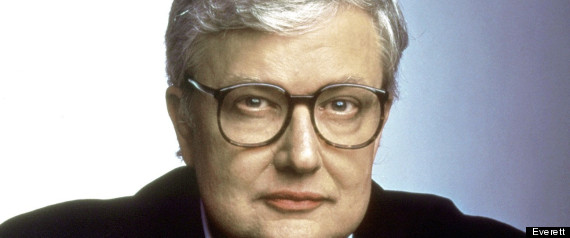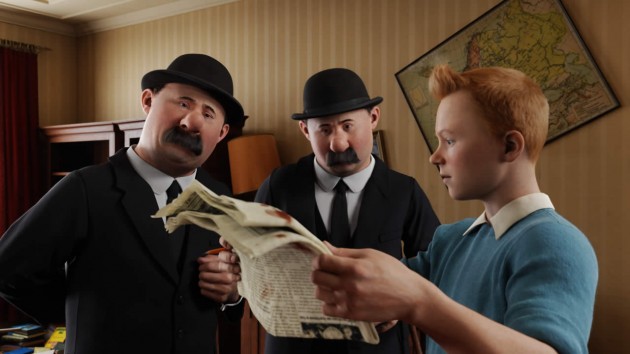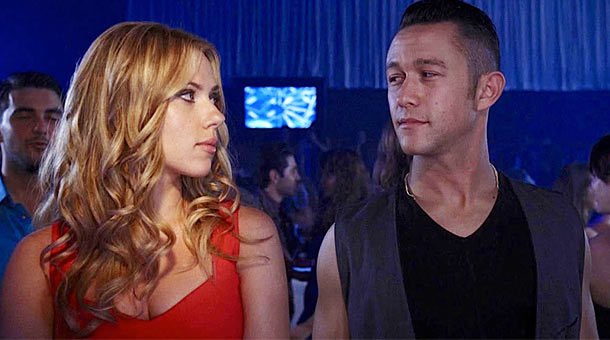 oger Ebert was wrong about a lot of movies. He completely didn’t get Blue Velvet or I Spit on Your Grave—he thought, kind of outrageously, that even a movie about rape should be entertaining, when the film’s intent was to make the audience experience the horror of rape as more than just a plot device. He went all in on Alex Proyas, hitching his reputation to the assertion that Dark City, a mediocre and derivative neo-noir SF mindfuck movie, is one of the greatest films of all time. This led to his doubling down on Proyas and giving four stars to Knowing, a horrible Nicholas Cage end-of-the-world mess.
oger Ebert was wrong about a lot of movies. He completely didn’t get Blue Velvet or I Spit on Your Grave—he thought, kind of outrageously, that even a movie about rape should be entertaining, when the film’s intent was to make the audience experience the horror of rape as more than just a plot device. He went all in on Alex Proyas, hitching his reputation to the assertion that Dark City, a mediocre and derivative neo-noir SF mindfuck movie, is one of the greatest films of all time. This led to his doubling down on Proyas and giving four stars to Knowing, a horrible Nicholas Cage end-of-the-world mess.
But he was right about movies.
Ebert, the only film critic ever to win the Pulitzer Prize, was a reviewer, not a critic.[ref]With notable exceptions. (Links to come: Ebert’s database is currently out of service.)[/ref] He didn’t approach a movie with a surfeit of footnotes in search of a margin. He approached a movie like real people do: with an honest, unembarrassed love for the very idea of movies as a storytelling medium. His reviews were not about a film’s place in cinema history, or its hermetic obtuseness. His subject, in all his reviews, was himself. Not the film, not the director, but Roger Ebert’s emotional reaction to the experience of watching the movie in front of him. His rating system was not based on finding a place for the film in the hierarchy of cinema history, but on how he felt about the movie while he experienced it.
For someone like me, who enjoys a bit of a challenge and will sometimes give a film extra props for being difficult to puzzle out, Ebert’s approach could sometimes be annoying. Sometimes it seemed to me like his approach to a film was to shut off his brain, and just decide if his gut liked a movie or hated it. And then he would do a post mortem, trying to justify his emotional reaction. Sometimes this bugged me. A lot.
Ebert could also be sloppy. Either sloppy, or incredibly clever: almost every one of his reviews had at least one factual error, where he described a character as a niece when she was a cousin, or mixed up characters’ names, inconsequential details like that. This erroneous Easter egg was so consistent throughout his reviews that eventually I concluded he must be planting them on purpose, to entrap plagiarists. Like Rand McNally (or so I’ve heard) inserting imaginary cul de sacs into every map it made in order to expose copycats.
But I always read his reviews first. Whenever I would look up a movie on IMDb, and wanted to know what its general reception was, I would look for his name, which holds a permanent place of honor at the top of any list of reviews, whether there are fifteen or five hundred. Roger’s reviews were so clearly expressed, and so emotionally familiar, that even if I disagreed with them they were useful: his reasons for liking or disliking a movie were almost always purely emotional, and so I could understand them. And so familiar, that even before I’d seen a movie, I could guess at my own reaction based on his. Thus sometimes a good Ebert review would taint a movie for me, or a bad review would make me need to see it. Because I always knew where he was coming from.
Roger Ebert’s reviews were invitations, not barriers. His overwhelming love for film—even when he was writing about a film he hated, hated, hated—brought readers into the discussion, it never shut them out. As infuriating as he could be sometimes—we exchanged emails on I Spit on Your Grave, and on his lifelong refusal to reconsider a film once he’d reviewed it—there will never be another reviewer like him.
Here’s to future generations of readers, who will turn to his writing not for study or homework, but for sheer pleasure in the love of movies.






